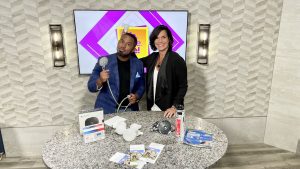From the uncertainty of the early pandemic months to record setting sales and home prices, the housing market has been like a roller coaster ride for buyers. No matter the state of the market, knowing what to expect can help you navigate the ups and downs of the home buying process.
“Being prepared is a win-win: it makes a realtor’s job easier and makes it far more likely that a buyer will end up with a positive outcome,” says Trey Van Tuyl, realtor with Discover Homes Miami. “There are fewer surprises and faulty expectations.”
Buying a home isn’t something you can do in a weekend or even a couple of months.
Saving for a down payment can take years and getting your finances in order can take servers months — that’s all before you even begin to shop. After that, homeowners spend an average of 4.5 months just searching for the right home, according to real estate listing site Zillow. If your local market is competitive, search times can be even longer.
Preparing for a home purchase can make the whole process a little less stressful. These tips can help you get started.
1. Determine how much home you can afford — and how much you’re willing to pay
Your first step is to determine exactly how large a mortgage you qualify for.
A rule of thumb used by most lenders is the 28/36 rule. According to this rule, no more than 28% of your gross monthly income should be spent on housing costs, while no more than 36% should go toward all debts including your mortgage payments. You can use a home affordability calculator to find out how big a mortgage you can qualify for.
However, being able to get a $400,000 mortgage doesn’t mean you have to spend that much if you have to sacrifice other things that are important to you.
“You don’t know what you can afford, and, more importantly, what you can’t afford, until you see how much money is available,” says Howard Dvorkin, chairman of consumer financial advisory site Debt.com. “You don’t know how to save money and put money away unless you do that budget.”
2. Save a down payment
Identifying areas where you can save money towards a down payment is important, since the more you put down, the more you can save in interest payments. While 20% is the gold standard, if you can’t swing that, make the largest down payment you can while maintaining a comfortable emergency fund (keeping in mind that home repairs can be expensive).
It is possible to get a conventional mortgage with as little as 3% down, but you’ll generally need to pay for private mortgage insurance if you put down less than 20%. PMI protects the lender — not you — and adds between 0.5% and 1% to your monthly payment on average. Some government-back loans, including FHA, VA loan and USDA loans require smaller down payments or even no down payment at all.
Once you know how much you need, figure out how much you should save each month to get there and where you can make spending cuts to achieve that goal. If your bank has an automated savings feature, sign up for it. By automating the process, you won’t spend the money on something else. You can also consider putting the money into a high-yield savings account that will pay a little interest on your balance to help you increase your savings.
3. Check your credit score
A good credit score is important in order to qualify for the best interest rates. While you can get a mortgage with a credit score as low as 620, you won’t qualify for the best rates. A score of 700 is considered to be good, but in order to get the lowest interest rates, you’ll need a score of 750 or higher.
If your score isn’t that great, you want to boost it as much as possible. Improving your score can take time, so getting an early start can help you get your credit in shape by the time you apply for a mortgage.
Check for errors and report any mistakes to the credit bureaus so they can be fixed. If you are behind on payments or have accounts that are in arrears, you won’t qualify for a mortgage. You’ll need to formulate a plan to pay those debts and increase your score before considering a home purchase.
Regardless of your current score, avoid major purchases when you’re about to apply for a mortgage. Your lender wants to make sure you can afford the monthly payments. Financing things like cars, furniture or other major purchases at the same time as you’re applying for a home loan can send the wrong signal. Applying for a lot of different kinds of credit around the same time can also hurt your credit score.
4. Track the real estate market
Keep track of home prices in your area and how they are changing. Are homes selling above list price? By how much? How many days are homes usually on the market before an accepted offer? Getting to know your target market will give you an idea of the type of home you’ll be able to afford and what kind of buying experience you can expect when you actually start looking.
“Tracking data in advance makes a gigantic difference,” says Alec Hartman, CEO of custom home builder Welcome Homes.
You can start tracking this information by looking at homes in the area you’re interested in on listing sites like Zillow or Realtor.com.
Establishing a good working relationship with a real estate broker early in the process means they can provide a lot of this information as well. Just as you research homes, research agents to see how experienced they are in your target area. You should start working with an agent once you have your finances set and are ready to start the buying process.
5. Have an exit strategy from your current home
If you’re selling a home, you’ll need to work closely with your real estate agent to time the sale with the purchase of your new home. This can be tricky, especially in a market where demand is high, and inventory is tight.
You may need to ask for a leaseback or a contingency in the sales contract allowing for a longer closing period or additional time for you to complete a new home purchase. You may also have to carry two mortgages for a period of time, so determine if you’re financially ready for it.
There are also companies, like Opendoor, that will buy your current home at a discount. Once you’ve bought your new home, they will market and sell your old home, passing the profits on to you minus a service fee.
If you’re currently renting a home, it’s a good idea to find out ahead of time how flexible your landlord will be when you’re actively house hunting. Find out if you can have a monthly extension on your lease if you need extra time to close on a home. Or, you may have to find and budget for a short-term rental if your landlord isn’t open to a month-to-month agreement.
6. Shop for a mortgage lender
It’s always a good idea to shop around and apply with different mortgage lenders to see which one offers you the best rate. According to Freddie Mac, borrowers who get at least two rate quotes save an average of $1,500 over the life of a mortgage. At five quotes the savings goes up to $3,000.
Also keep in mind that interest rates can be negotiated. If you find a lender you like but the interest rate is higher than another lender, it won’t hurt to try to get them to reduce the rate. You also want to get a pre-approval letter, which will let a home seller know that you have the financial resources to complete the purchase.
7. Be patient
Buying a home is a big decision. Don’t be pressured into a home that doesn’t fit your budget or meet all your needs. If you lose out on a home, there will be other opportunities.
“Buying at the top of the market is never ever a good idea. You got to be patient, you got to be frugal and in the end if you do those things, you’re patient and you’re frugal and watch the dollars you’re going to win at the end,” says Dvorkin.
More from Money:
You’re Only Ready to Buy a House if You Can Answer ‘Yes’ to These 7 Questions
The Housing Market Shows No Signs of Cooling. 5 Tips For Buying This Summer Anyway
‘FOMO Took Over.’ Some Buyers Who Caved to a Hot Housing Market Now Regret It





